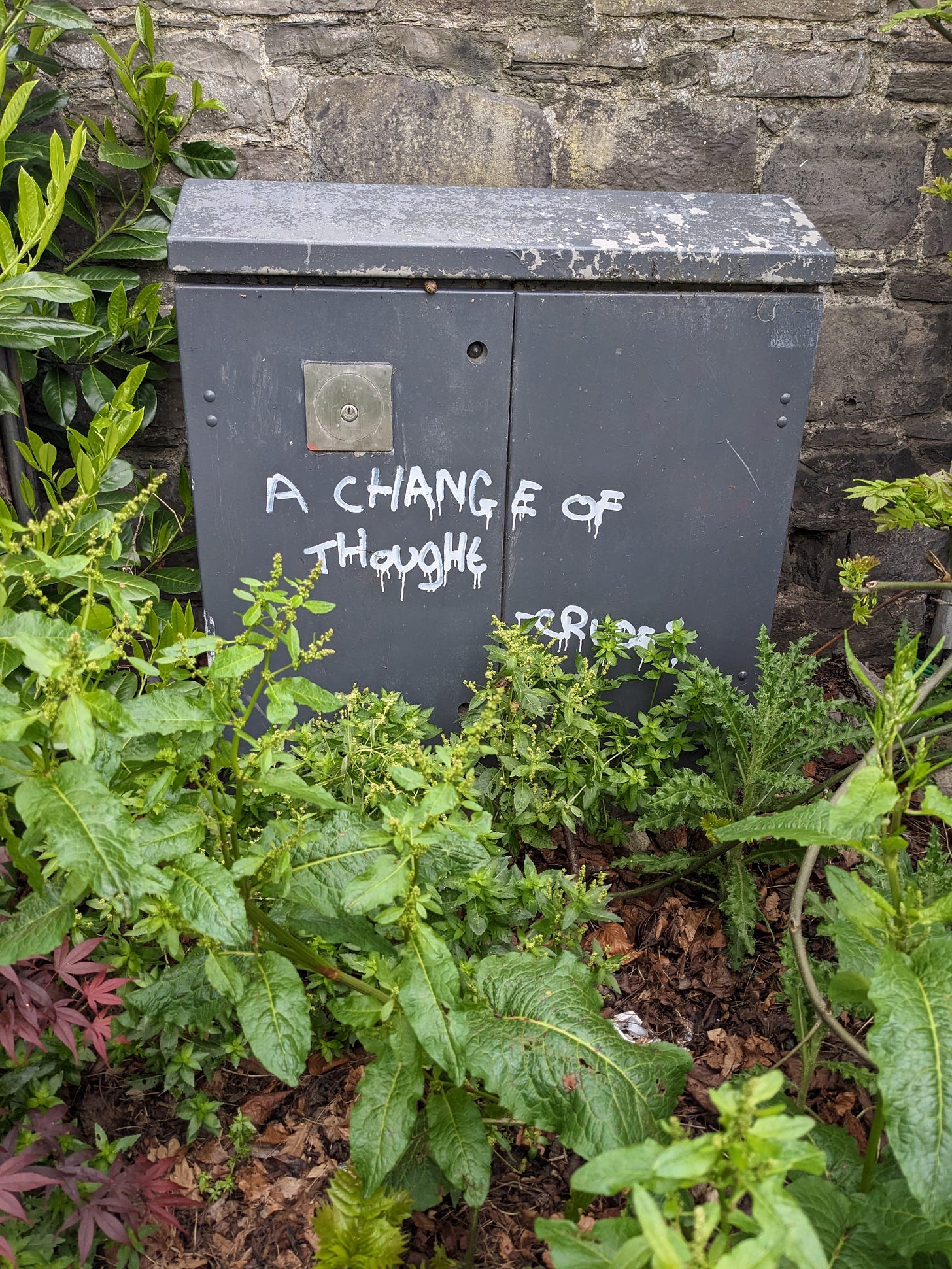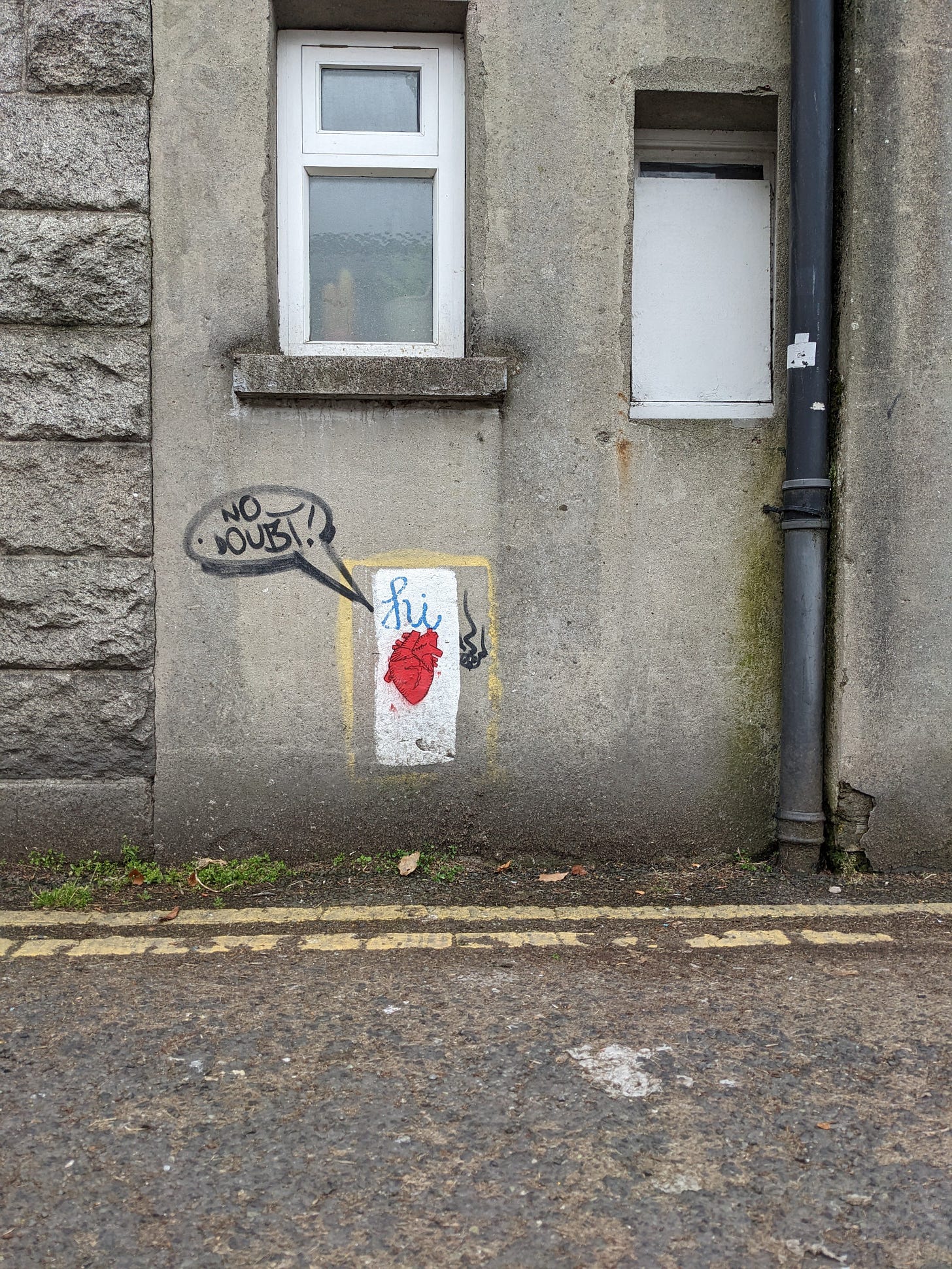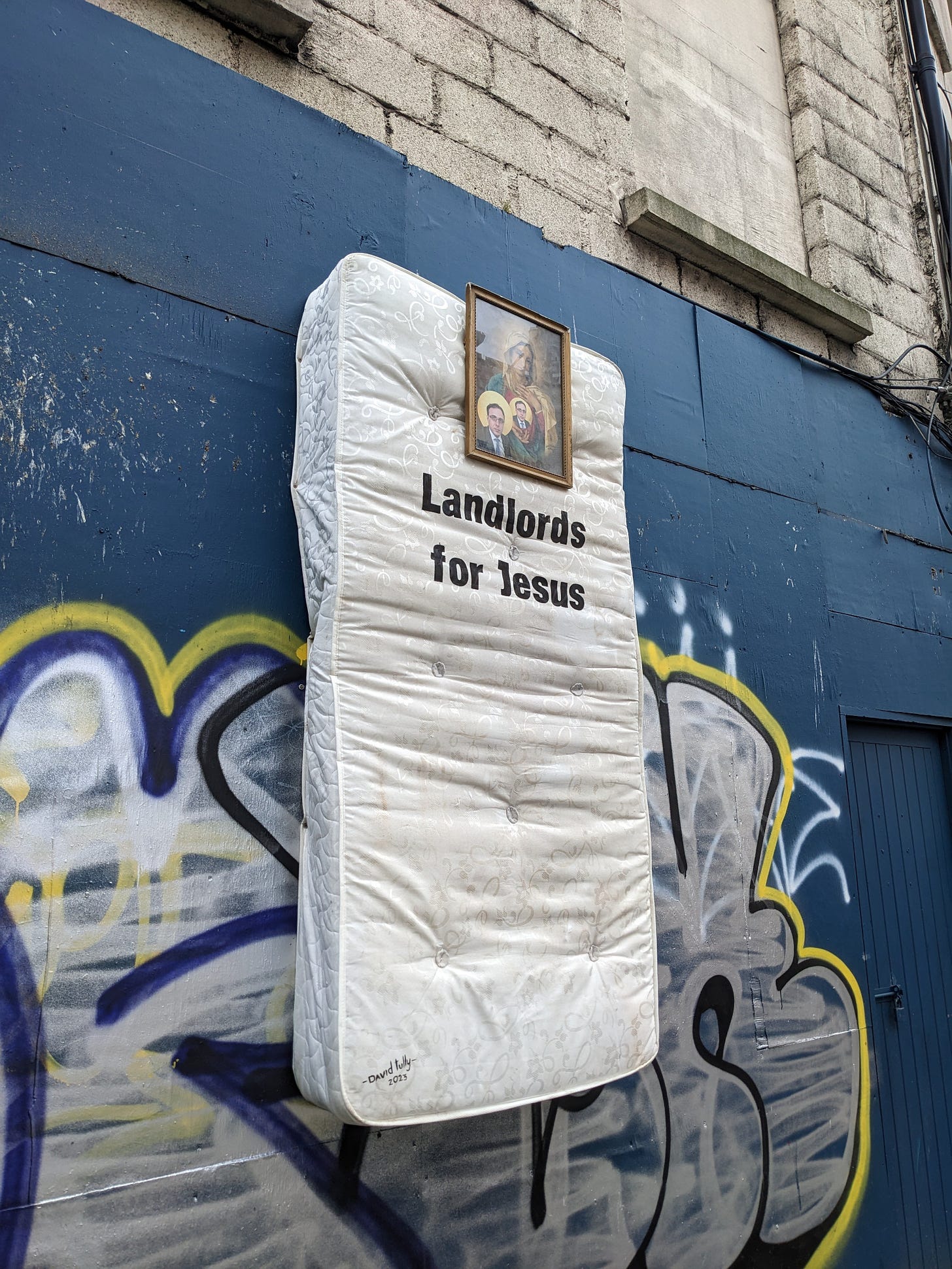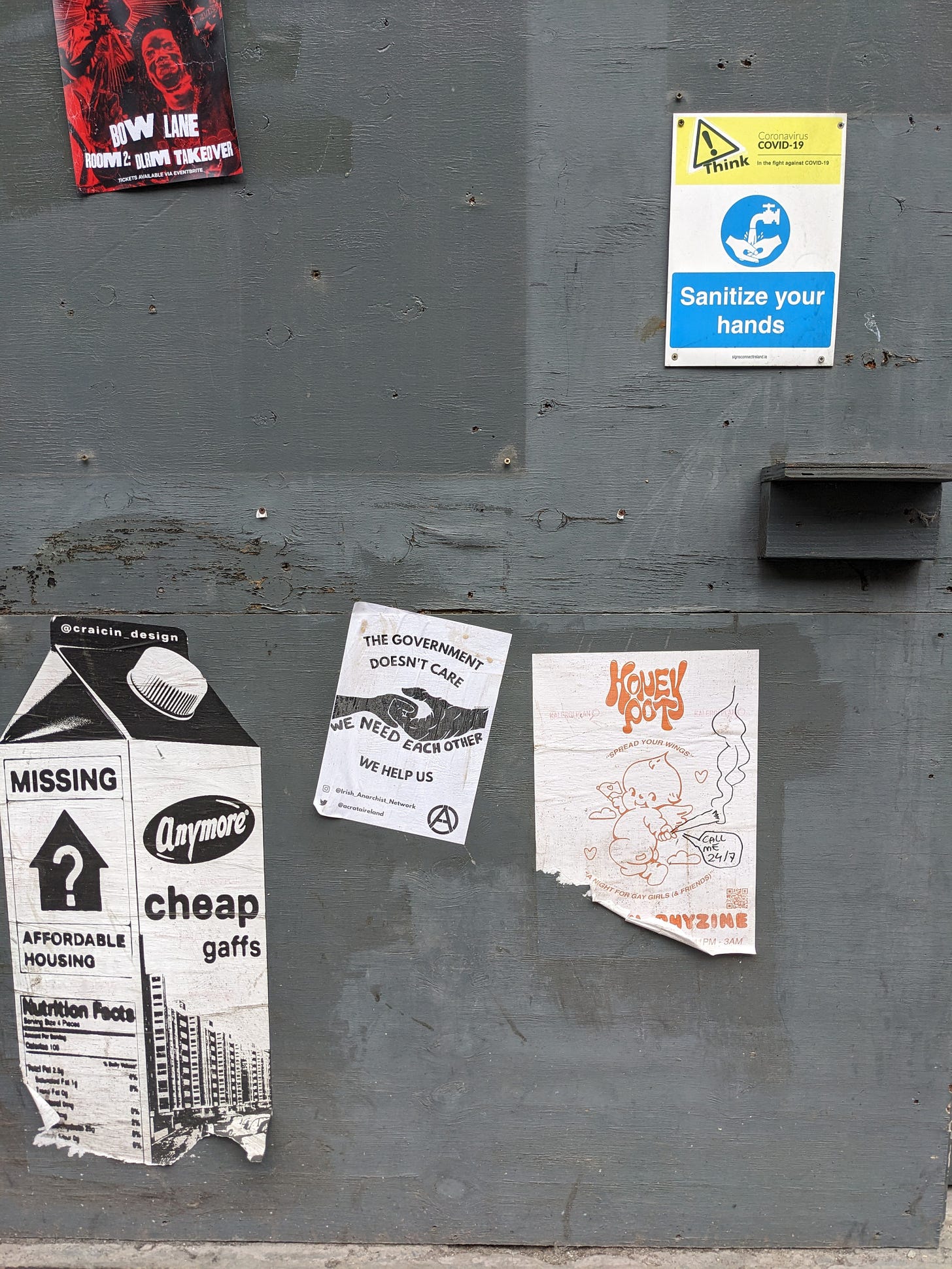We all know these mall-food-court-bench type places that the billionaire enclosers of the internet have bought and sold us on are not really our common places. We know we need shared, truly public spaces to have ideas no billionaire could ever dream of, because such spaces are worth our lives—and our lives are worth much more than the paltry billions of dollars those restless hoarders dream. We know that the commons we need we make together (every one of us) and that that commons puts to shame the stories about competition and merit, in the light of the truth of the dignity of all our shared lives (humans, animals, plants, water, land, air). But in the meantime, we bend the billionaires' unpublic spaces to make a shape we can live with.
There is a crisis in Ireland: far too many wealthy people and corporations owning property, far too little available for ordinary people to live in. Far too many landlords and aspirational landlords. This is not only a problem here, but here I am. (To give some numbers: there are 26 houses in the entire county I live in that are for sale for less than €225,000. One house I looked at, listed at €285,000, sold for €410,000. Average rent in Dublin County is €1900+/month. Average salary in Dublin is €32,000±/year. When we were looking for a place to rent, we sent out about 175 queries and received five invitations to tour a property. At each tour, there were multiple prospective tenants. At a bus stop recently, a woman with a baby started up a conversation with me and disclosed that between her and her partner they could barely pay rent and would be leaving their current apartment at the end of the month. But to where? They could not find anything they could afford within an hour’s commute of their jobs.)
How do you make art in places where you can’t even live? How do social movements form when you have to work overtime to pay rent? How do you care for others? How do you keep your health?
How do you meet friends, in your new city, if you have to work as many shifts as you can just to pay your landlord? How can you build something, how can you root, if the only future you can see is emigration or sharing a dorm-style room for half of your paycheck every month? Where is there to say this stuff? How do you find your people? (And how can it be that there are houses selling for millions and millions of euro just a half mile from where people are literally sleeping in tents?)
Some public speech feels urgent now: speech that reminds us these are our places. The streets are ours. We pay for them. Many of us built them, many of us maintain them. We do not have to wait to speak to one another—not for a boss to give us a break, or a gallery to offer us a show, or a publisher to accept a book. We do not have to wait. We can say, as these marks do, I’m here, you’re here. We are here. This is wrong, this is right, this is what we need, this is what we dream.
We need each other. We help each other. Get a piece of paper. Write on it in big letters the thing you want to say. Put it in your window. Get a piece of cloth. Embroider what you hold dear there. Go to the copy shop and enlarge your poem-drawing-thought bubble; print a dozen copies. Make some wheatpaste. Find some walls, maybe those plywood walls put around demolition sites, where in a year some shoddy expensive condos will go up. Look. Look. Look. Look. With our own hands (shaking as they may be), with the lines our hands make, with the words of our minds and the company of others: we can remind ourselves what is common to us all. Make it, in a transient way, paper way, a fragile and tenuous way, a flickering way ours. They may have the billions, but we have the dreams.
Thanks for being here and for reading.








